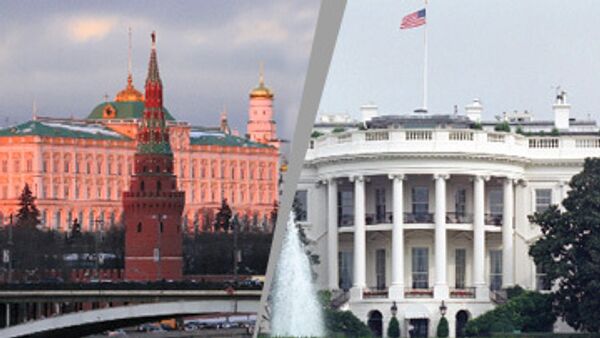MOSCOW, July 1 (RIA Novosti) - Russia and the U.S. are looking to make a breakthrough in security issues, a senior Russian senator said on Wednesday on the sidelines of the RIA Novosti-hosted Valdai Discussion Club.
Speaking ahead of the July 6-8 visit of U.S. President Barack Obama to Moscow, Mikhail Margelov, head of the international affairs committee in the upper house of the Russian parliament, said: "The fact that we have finally returned to the discussion of nonproliferation and arms reduction issues, which none of us was taking seriously for the last 18 years, is a really good sign."
He added that Russia and the U.S. "really care about security issues and are trying to do something positive in that direction together."
Russia and the U.S. have been involved in comprehensive talks over a new nuclear arms reduction deal to replace the START 1 treaty, which expires in December.
The START 1 treaty obliges Russia and the United States to reduce nuclear warheads to 6,000 and their delivery vehicles to 1,600 each. In 2002, a follow-up agreement on strategic offensive arms reduction was concluded in Moscow. The agreement, known as the Moscow Treaty, envisioned cuts to 1,700-2,200 warheads by December 2012.
Russia, which proposed a new arms reduction agreement in 2005, expects Washington to agree on a deal that would restrict not only the numbers of nuclear warheads, but also place limits on all existing kinds of delivery vehicles.
Russian and U.S. experts have held three rounds of behind-closed-doors talks on a new deal since April and have agreed to report on their results at the Russian-U.S. July summit in Moscow.
Margelov also said: "We also have to think more seriously about Russian-American economic ties because such a relationship really creates a solid foundation for bilateral relations, it creates pro-American feelings in the business community in Russia and pro-Russian feelings in the business community in the United States."
"And the more bridges we have, the more docking mechanisms we have, the more communication tools we have, the better it will be for building mutual trust, that will be the main confidence building mechanism," he said.
Dimitri Simes, president of the Nixon Center and publisher of The National Interest, urged a change in approaches. He said: "It is clear that U.S. national interests require a new policy toward Russia. There is a new consensus in the United States that there need to be serious and real changes in how America approaches Russia."
"Our discussions here suggest that there is a feeling in Moscow that a different and better relationship with the United States is also in the Russian interest. That is the basis - the national interests of both countries," he said.


